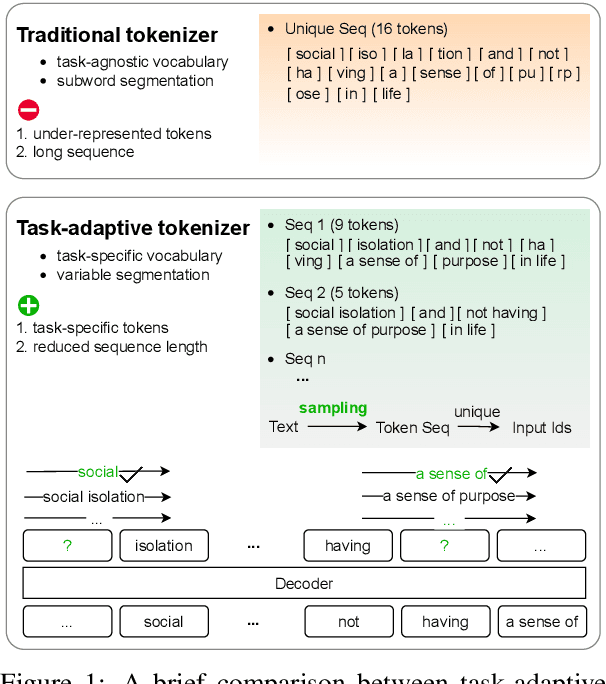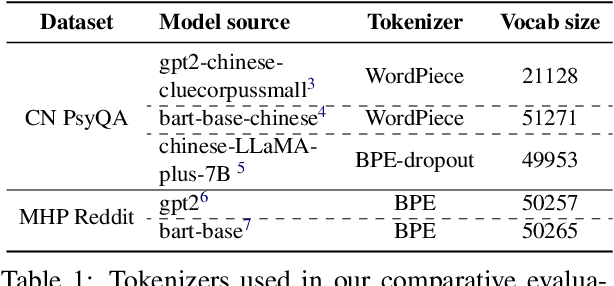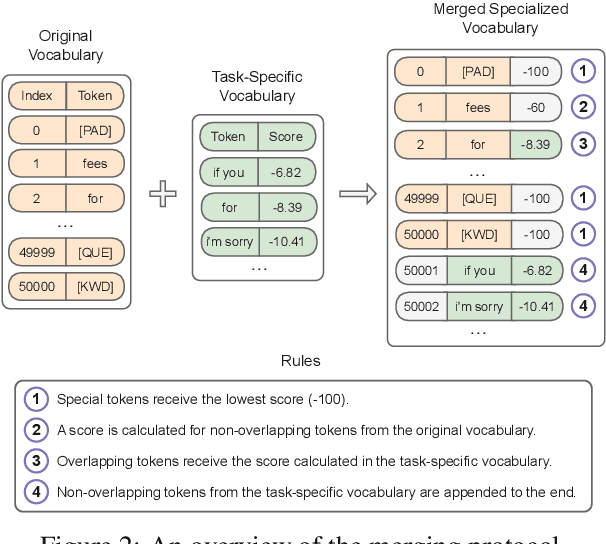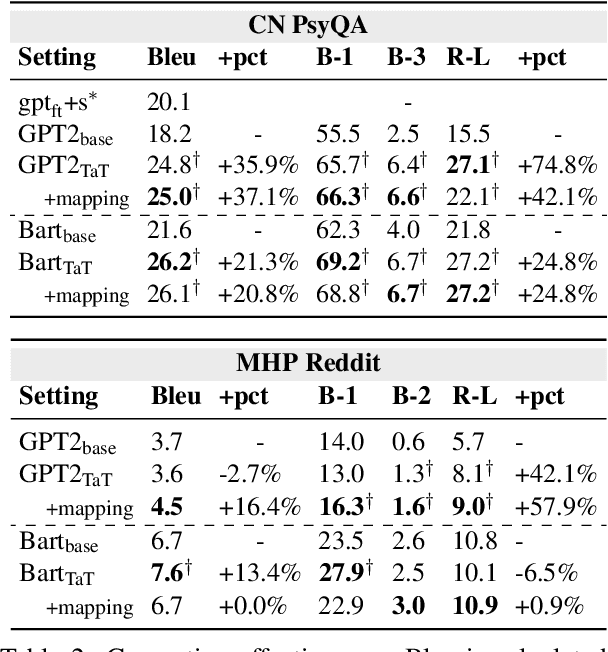Enhancing Long-form Text Generation Efficacy with Task-adaptive Tokenization
Paper and Code
Oct 23, 2023



We propose task-adaptive tokenization as a way to adapt the generation pipeline to the specifics of a downstream task and enhance long-form generation in mental health. Inspired by insights from cognitive science, our task-adaptive tokenizer samples variable segmentations from multiple outcomes, with sampling probabilities optimized based on task-specific data. We introduce a strategy for building a specialized vocabulary and introduce a vocabulary merging protocol that allows for the integration of task-specific tokens into the pre-trained model's tokenization step. Through extensive experiments on psychological question-answering tasks in both Chinese and English, we find that our task-adaptive tokenization approach brings a significant improvement in generation performance while using up to 60% fewer tokens. Preliminary experiments point to promising results when using our tokenization approach with very large language models.
 Add to Chrome
Add to Chrome Add to Firefox
Add to Firefox Add to Edge
Add to Edge